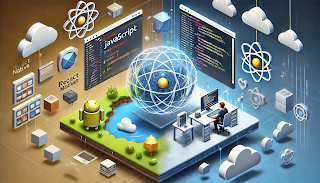"Just imagine your keyboard and mouse moving based on your thoughts alone"The Rise of Brain Implants
A revolutionary Brain Technology:
In 2018, Gizmodo reported that Neuralink
"remained highly secretive about its work", although public records
showed that it had sought to open an animal testing facility in San Francisco;
it subsequently started to carry out research at the University of California,
Davis.[25] In 2019, during a live presentation at the California Academy of
Sciences, the Neuralink team revealed to the public the technology of the first
prototype they had been working on. It is a system that involves ultra-thin
probes being inserted into the brain, a neurosurgical robot to perform the
operations and a high-density electronic system capable of processing
information from neurons. It is based on technology developed at UCSF and UC
Berkeley.
How Human-Implanted Brain Chips
The implants, made of
"ultra-fine" threads, can transmit signals from the brain and connect
those to commands on an electronic device, Neuralink said.
Potential Applications and Benefits :
Transformative Possibilities
Enables control of your phone or
computer, and through them almost any device, just by thinking. Initial users
will be those who have lost the use of their limbs. Imagine if Stephen Hawking
could communicate faster than a speed typist or auctioneer.
Ethical Considerations and Concerns :
Potential Benefits:
Medical Applications: Brain chips could be used to treat neurological disorders, restore
lost functions, or enhance cognitive abilities. For instance, they might help
individuals with paralysis regain movement or improve memory and learning.
Assistive Technology: Brain implants could assist people with disabilities, allowing them
to control devices, communicate, or interact with the world more effectively.
Brain-Computer Interfaces
(BCIs): BCIs could enable direct communication
between the brain and external devices, facilitating thought-controlled actions
and communication.
Concerns and Considerations:
Ethical Implications: Implanting a chip in the brain raises ethical questions about
consent, autonomy, and potential misuse. Issues related to privacy and the
potential for unintended consequences need careful consideration.
Security Risks: Brain implants could be vulnerable to hacking or unauthorized
access, posing serious security and privacy concerns. Safeguards must be in
place to protect individuals from potential cyber threats.
Long-Term Health Effects: The long-term impact of having a foreign object in the brain is not
fully understood. Concerns include potential tissue damage, immune responses,
or unforeseen health consequences.
Current Developments and Innovations :
"Initial results show promising
neuron spike detection," Musk said in a post on the social media platform
X on Monday.
Spikes are activity by neurons, which
the National Institute of Health describes as cells that use electrical and
chemical signals to send information around the brain and to the body.
The Latest in Brain Chip Technology
In September, Neuralink said it received approval for recruitment for the human trial. The study uses a robot to surgically place a brain-computer interface (BCI) implant in a region of the brain that controls the intention to move, Neuralink said previously, adding that its initial goal is to enable people to control a computer cursor or keyboard using their thoughts alone.
https://search.yahoo.com/search?fr=mcafee&type=E210US1485G91801&p=Source+form%3A-https%3A%2F%2Fwww.thehindu.com%2Fsci-tech%2Fscience%2Felon-musk-says-the-first-human-has-received-an-implant-from-neuralink-but-other-details-are-scant%2Farticle67794387.ece
Conclusion:
The road ahead involves collaboration among scientists,
ethicists, policymakers, and the public to shape a future where brain-implanted
chips contribute to human well-being without compromising fundamental rights
and values. The journey into this brave new world demands careful
consideration, ethical reflection, and a commitment to ensuring that the
potential benefits are realized responsibly and equitably.
Written By-
Arif Mohd.
Fullstack Web Developer.






Very good topic
ReplyDelete